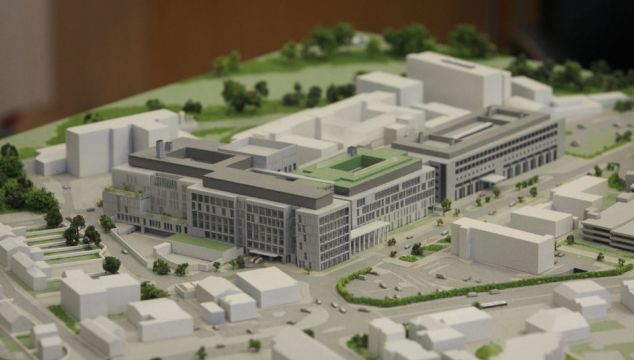The Cabinet has approved plans for the co-location of the new National Maternity Hospital (NMH) to the site of St Vincent's Hospital in Dublin. However, the process has been far from smooth, with concerns raised over the new hospital's ownership and governance.
Here's everything you need to know about the new hospital and the controversy surrounding the plans...
Why build a new hospital?
The current National Maternity Hospital (NMH) is located on Holles Street in Dublin City Centre, having been established in 1894.
Due to the age of the building and the lack of space for expansion, the hospital has been deemed as not fit for purpose.
In addition, Taoiseach Micheál Martin has previously said that medical advice over the past number of years has indicated that maternity hospitals should be co-located with tertiary hospitals, such as St Vincent's, in order to improve outcomes for mothers and infants.
What's causing the controversy?
While there's a consensus that a new hospital is needed, the issue arises due to the decision to use a site (now-previously) owned by a religious order, the Sisters of Charity.
Given the Catholic Church's historic influence in Ireland, there was widespread concern that the NMH would not be able to offer certain procedures, such as terminations or tubal ligations, if the hospital was required to operate under a Catholic ethos.
The issues surrounding the new NMH can be broken into land, ownership and operations:
1. Land
When the idea of building a new NMH was first floated, the land of the proposed site at the St Vincent's Hospital campus in Elm Park, Dublin was owned by the Sisters of Charity.
The order offered to give the State use of the land for public healthcare, however, a public outcry ensued, calling for the hospital to be entirely secular with no ties to any religious group.
In response, the Sisters of Charity moved to give up its stake in St Vincent's, which is run by St Vincent's Hospital Group (SVHG), with the order's shares transferred to a new not-for-profit group, St Vincent's Holdings.
I want to take this opportunity to give the background to the decision to co-locate the new National Maternity Hospital on the grounds of St Vincent's Hospital. pic.twitter.com/0qXEzxLKVP
— Micheál Martin (@MichealMartinTD) May 11, 2022
Advertisement
Appearing before the Oireachtas Health Committee to discuss the NMH proposal, a solicitor for SVHG, Donal O'Raghallaigh explained why the land was not simply gifted to the State for the hospital rather than establishing a lease agreement, stating: "A charity can’t just give away property willy-nilly."
He said there is a "consideration process in relation to the disposal of land, whether that’s by lease or whether that’s by freehold", adding it was "an academic point in law" but one which would not "disturb the 299 ownership-lease interest that the State has".
In addition to this, Minister for Health Stephen Donnelly told the same committee that "consistent" requests by the current and previous government to purchase the site had been turned down, explaining a sale of the land "simply is not something that has been on the table for [St Vincent's]".
Since the purchase or gifting of the land was not an option, opposition parties called for the Government to use a Compulsory Purchase Order (CPO) to buy the site at St Vincent's, or to find a new site altogether. However, Mr Donnelly said such action "would take too damn long", possibly adding 10-15 years to the project, adding that a CPO would also not be guaranteed to work.
2. Ownership
Following on from the land debate, there has been confusion over the ownership of the hospital.
While St Vincent's still own the land, the Government has repeatedly stated the 299-year lease agreement effectively amounts to State ownership.
Speaking on his way into the Cabinet meeting on Tuesday at which the plan was approved, Mr Donnelly further stressed the new NMH will be a voluntary, “fully secular”, public hospital.
"The State will own the hospital, the State will own the land for the next 300 years," he added.
3. Operations
Concerns over the new NMH's operations again goes back to the land and ownership issues, with fears that the hospital's offerings may be impacted if it is anything other than fully State-owned.
However, those in favour of the plan going ahead - including the former master of the NMH, obstetrician and gynaecologist Dr Rhona Mahony - have said the new hospital's constitution guarantees there is no possibility of religious influence on the hospital.
Although the use of the term 'clinically appropriate' in the hospital's constitution regarding the procedures which will be offered was flagged as a potential pitfall, Mr Donnelly and the Government have repeatedly said "all legally permissible" procedures which are currently available at the NMH at Holles Street will be available at the new hospital.
While addressing the Oireachtas Health Committee, Mr Donnelly further remarked: “Not only through the constitution are we guaranteeing clinical, operational independence, we’ve gone a step much further, which I’m advised by the Attorney General is either very rare or unique.
"We are saying that they must provide all services, and six times in the constitution we have said that there can never be any religious influence whatsoever."







